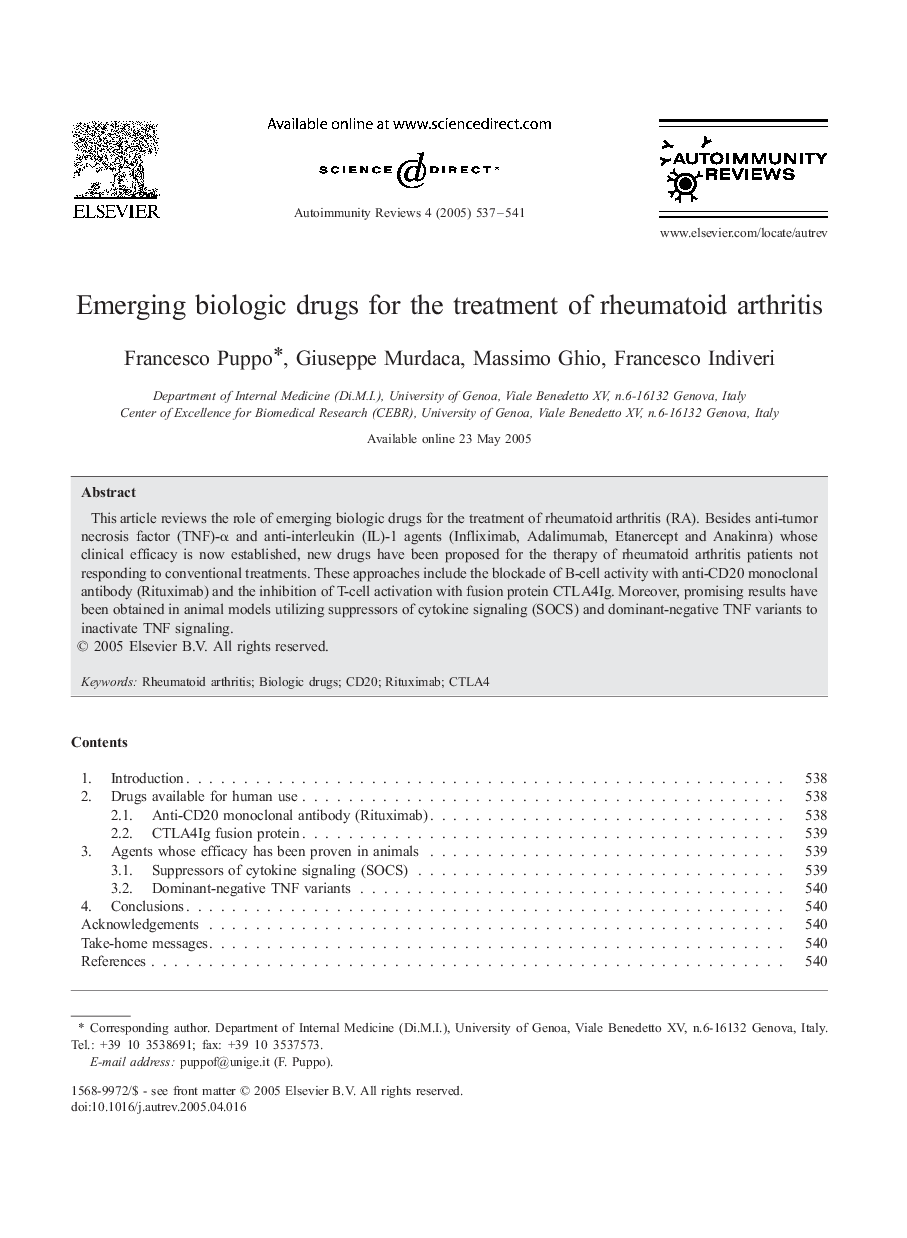| Article ID | Journal | Published Year | Pages | File Type |
|---|---|---|---|---|
| 9261661 | Autoimmunity Reviews | 2005 | 5 Pages |
Abstract
This article reviews the role of emerging biologic drugs for the treatment of rheumatoid arthritis (RA). Besides anti-tumor necrosis factor (TNF)-α and anti-interleukin (IL)-1 agents (Infliximab, Adalimumab, Etanercept and Anakinra) whose clinical efficacy is now established, new drugs have been proposed for the therapy of rheumatoid arthritis patients not responding to conventional treatments. These approaches include the blockade of B-cell activity with anti-CD20 monoclonal antibody (Rituximab) and the inhibition of T-cell activation with fusion protein CTLA4Ig. Moreover, promising results have been obtained in animal models utilizing suppressors of cytokine signaling (SOCS) and dominant-negative TNF variants to inactivate TNF signaling.
Related Topics
Life Sciences
Immunology and Microbiology
Immunology
Authors
Francesco Puppo, Giuseppe Murdaca, Massimo Ghio, Francesco Indiveri,
